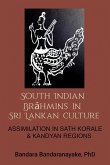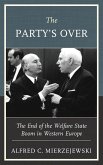This volume presents the travel journals of George and Anna Ticknor, a prominent American couple, from their German tours in the first third of the nineteenth century. The parallel yet independent writing of these travel journals by husband and wife give these journals a unique character.
Hinweis: Dieser Artikel kann nur an eine deutsche Lieferadresse ausgeliefert werden.
Hinweis: Dieser Artikel kann nur an eine deutsche Lieferadresse ausgeliefert werden.
In this work, elite Americans express their fascination with the cultural and social life they observed and experienced while on extended tour in early nineteenth-century Germany-particularly in Dresden, the vibrant capital of the Kingdom of Saxony. Expertly edited, the volume introduces us to an image of a romanticized/idealized Germany that shaped the thinking of many Americans for decades after the Ticknors' travels. It makes an important contribution to our understanding of the ways in which European traditions influenced intellectual developments in the United States. -- Andrew Lees, Rutgers, The State University of New Jersey Well edited by an insightful introduction and extensive annotations, these travel journals provide an opportunity to see eastern Germany through two elite Americans' eyes. Since the travelers kept separate journals a novel comparative perspective emerges on court society and the political reforms of 1830. -- Dieter K. Buse, Laurentian University This highly readable and well annotated edition of George and Anna Ticknor's journals from their travels to Germany opens a window into a world of learning, art, and personal fulfillment that seems hard to imagine in the twenty-first century. That American travelers fell in love with Old World charme has often been reported, but seldom so convincingly as in the case of the Boston couple in nineteenth-century Dresden, the 'Florence upon the Elbe.' The recovery-and first publication-of Anna Ticknor's journal adds a rare female voice and makes the encounter with princes, writers, and commoners truly come to life. -- Frank Trommler, University of Pennsylvania








